And here I thought applying for my long stay French visa was tough. That felt like a walk in the park to navigate compared to finding an apartment in Bordeaux. I Googled endlessly and didn’t find any information that was actually helpful in this process, so you get to benefit from the tears shed, stress and heart palpitations that led to my tips on how to find an apartment in France.
 Understanding How To Find an Apartment in France as an Expat
Understanding How To Find an Apartment in France as an Expat
It’s been a long time since I had to hunt for a new place to live, but I can remember when I moved in to my first apartment in Las Vegas. I looked at hundreds of apartment complexes online while I was home for the summer from my first year of college. I knew just what I was getting with floor plans, professional photos and a clear list of complex amenities.
Heck, I even emailed everything I needed to do the credit check and had an apartment already before boarding my flight back to Vegas. All I had to do was show up during office hours, get the keys, sign on the dotted line and I was home – and this was in 1999 when the Internet was still barely a thing. Remember AOL dial-up?
Forget about being able to do anything from afar when apartment hunting in most of France. The French like to do business in person and the landlord or the the management company will most definitely want to meet you in person. Though there are some websites where you can look at available listings online, ultimately you’ll need to be in France for the apartment hunting process. That may mean making one or more trips before you actually intend to move to France.
First Things First: Get a French Bank Account
The one thing I didn’t know was the importance of getting a French bank account. In hindsight, as soon as I had my visa in hand getting a French bank account should have been the top priority on my to do list.
It was honestly news to me because an Italian bank account wasn’t essential to my existence in Italy. In France, however, you literally can’t do anything without having a French bank account.
Also news to me, since I once-upon-a-time managed a bank branch, is how long it can take to open a French bank account. Forget about walking in with $25 and walking out with a nice little packet of temporary checks and a temporary ATM card. You need to present an entire dossier of information including your last year’s tax return. If you’re American, you need approval from the main bank office (likely located in Paris) and that takes around 10 business days.
Prepare Your Dossier
Finding an apartment in France is more akin to applying for a job. You’re the candidate and you need to impress your potential new landlord. It doesn’t matter how much you love the apartment if the landlord isn’t keen on having you as a tenant. One thing I’ve learned is that the French love their paperwork and the easiest way to impress them is to be prepared.
When you look at apartments and you get that feeling about a place, you’ll want to be prepared to hand over your dossier (the giant packet of paperwork) that proves your worthiness. This dossier should include:
- A photocopy of your passport
- A photocopy of your visa
- A copy of your marriage certificate, particularly if you and your spouse have different last names
- Your last year’s tax return
- 3 months of bank statements with rent payments highlighted
- Proof of employment such as your last 3 pay slips or an employment contract
- A certificate from the bank stating that you are good client
Start Looking Around on Websites
Owners list their properties with individual real estate agencies in the neighborhood that the apartment is located in and, if you’re lucky, the agency will list the property on websites like Seloger.com or Particulier à Particulier.
These website themselves are fine and straightforward to use. You can easily search by city and then even further narrow your search to neighborhood, minimum size, maximum price and a variety of other filters. I subscribed to receive new listings by email.
Sounds easy enough, right? Well, first the good apartments go fast. I or a French-speaking friend would call within hours of a listing becoming available and there were already three people that had made appointments to see it. By the time my appointment would come around, the agency had called to cancel since it was already rented.
Second, the photos – if the listing even had photos at all – were typically one or two and generally horrible. My favorite were the listings that only had a photo of the exterior of the building. Great, but what the hell does the apartment actually look like?
When there are interior photos, they are entertaining. Like this one. I mean, what exactly is going on here? Is this some sort of Alice in Wonderland situation where I need to drink something to shrink down to fit through this door every time I enter or leave the room?
There’s nothing necessarily wrong with this photo, but I spent way too much time contemplating why there appears to be a boat porthole window in the kitchen. And is that the bathroom it looks in to?
The good thing about the incredible amount of time that Tim, I and my friends spent scouring Seloger was that I had a really good idea of typical layouts, amenities (yes, even things like kitchen cabinets can be amenities) and what I could get in my budget range. Tim and I also knew Bordeaux like the back of our hands from walking the neighborhoods of these listings on Google Street View and I knew exactly what neighborhood I wanted to live in.
Other websites you can also look on are Leboncoin, Craigslist and each individual agency’s website.
Make Appointments with Agencies
In France (it was the same in Italy), your agency gets a fee when you rent. You don’t pay anything up front to look at apartments. You definitely want to make appointments at the agencies in the neighborhood where you want to live. However, avoid agencies that want you to pay a fee upfront for access to their listings or contacts.
They’ll take information about your budget, the minimum square meters you want to live in and any requirements you might have. I knew I didn’t want to live in an apartment smaller than 50 square meters and that I didn’t want to live on the ground floor. Ideally, I also wanted to be within 300 meters of public transportation, for the apartment to come equipped with a refrigerator, stove top, oven and washing machine machine and that it needed to be pet friendly.
Also inform the agency what kind of visa you have and about your situation in France. I’m in France on a long stay visa and without prior rental history in France, which means a lot of red tape and hoops to jump through. Some agencies, because of the type of insurance they or the landlords they have as clients had, could not legally rent to me simply because I don’t have a job contact in France.
The agencies that could help would let me know which listings they already had that met my criteria and could get in touch with me if a new listing seemed like a good fit.
 Learn a Few French Words and Phrases
Learn a Few French Words and Phrases
If you don’t speak French as I still don’t, start learning. I’m working on my French with the free app Duolingo and with Rosetta Stone. In addition to things like learning your numbers and some phrases, you’ll want to learn a little property jargon. These are some good words and phrases to know:
Immobilier – real estate
Le loyer – rent (as in the cost)
Louer – to rent
Location – rental (as opposed to a property for sale)
L’appartement – apartment
Charges (non) comprises – charges not included such as a fee for the common areas, taxes, water or other utilites
Meublé – furnished
Non meublé – not furnished
Taxe d’habitation – property tax
Cuisine aménagée – a kitchen equipped with built-in cupboards but without appliances
Cuisine équipée – a kitchen equipped with built-in cupboards and some appliances
État des lieux – an inventory of the apartment
Be Prepared for Red Tape…Lots and Lots of Red Tape
Finding a place you like is the easy part; actually renting it is another story. There are loads of complicated laws and regulations regarding eviction. Unlike in the US, most of the eviction laws in France work in your, the tenant’s, favor and eviction is a long process. For example, your landlord can’t evict you during winter months from mid-October through mid-April.
For this reason, landlords like to protect themselves and ensure they’re going to get paid. If you have no rental history or job contract in France, like me, you’ll need a guarantor.
Some banks will act as the guarantor, though you actually front the money for the guarantee. Typically landlords require 12 months rent as the guarantee. You’ll apply for this guarantee at your French bank sort of like you’d apply for a line of credit in the US. The guarantee is tied to a specific beneficiary, your landlord, so you need the rental contract in order to apply for the guarantee. Like opening the bank account itself, the guarantee must be approved by the bank’s head office and takes 30 days.
Understand the Costs You’re Liable For
Say you find an apartment and the rent is €800 per month. It’s not as cut and dry as your apartment will only cost €800 per month.
First, be sure to understand what your monthly rental fee includes. Typically it will include water, sewage and any fees for the communal areas of your building. It may, but not usually, include gas or electricity. Be sure to ask about this.
Additionally, there is a yearly habitation tax that is due in January of each year. If you move in mid-year, say in June like I did, the habitation tax will already have been paid for the year most likely by the previous tenant. You definitely want to ask how much the taxe d’habitation is so you know how much you’re liable for.
Finally, ask how much the deposit and agency fees are if they aren’t on the property listing. Typically the deposit in France is 1-2 months rent, though a furnished (meublé) apartment’s deposit can be as much as equal to the rent for the length of your contract. The agency fees are typically between €250 and equal to one month’s rent.
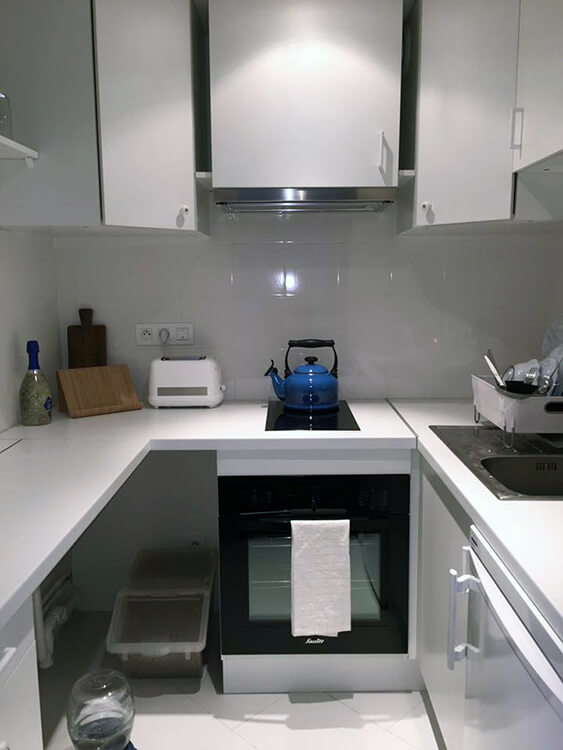
My small, but well-designed kitchen came equipped with cabinets, though I did have to purchase all my appliances
Signing the Lease
Congratulations! If you’re to the point where you’ve got an appointment set to sign the lease, you’ve successfully navigated this horrendous process and are in the home stretch. Be prepared to spend 3-4 hours signing the lease and completing a état des lieux (an inventory of everything wrong with the apartment). If you don’t complete this, the apartment will be considered to have been in perfect condition when you moved in and you’ll get a bill for any repairs the landlord deems necessary when you move out. So be thorough.
You’ll also need to provide proof of renter’s insurance before the keys to your new apartment can be handed over to you. This was the simplest thing I had to deal with. I recommend AXA as they have English speaking agents, are inexpensive and handle everything online quickly. The price of insurance is fairly inexpensive and is based on a calculation of the total square meters of the apartment and actual livable space.
You simply provide information such as the number of rooms larger than 6 square meters, how secure the building is, which floor the apartment is located on and the amount for valuables you’d like covered. You’ll promptly receive a quote and if you accept, you sign the contract online and receive your certificate to present to your landlord.
A bottle of champagne is definitely in order once those keys are in hand. You earned it!
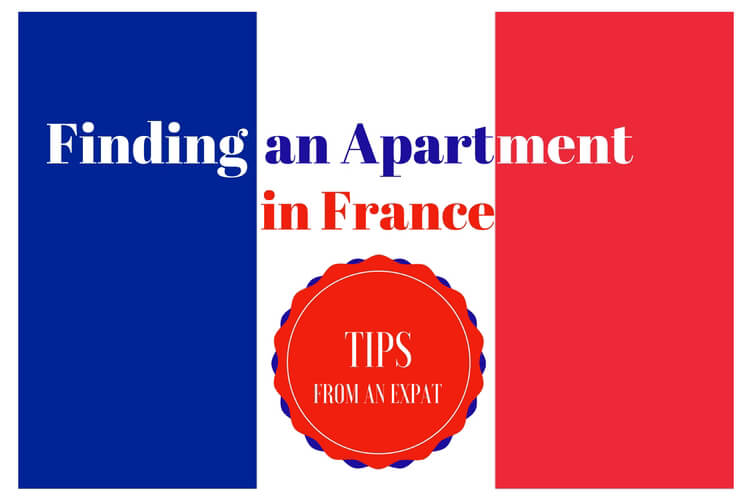
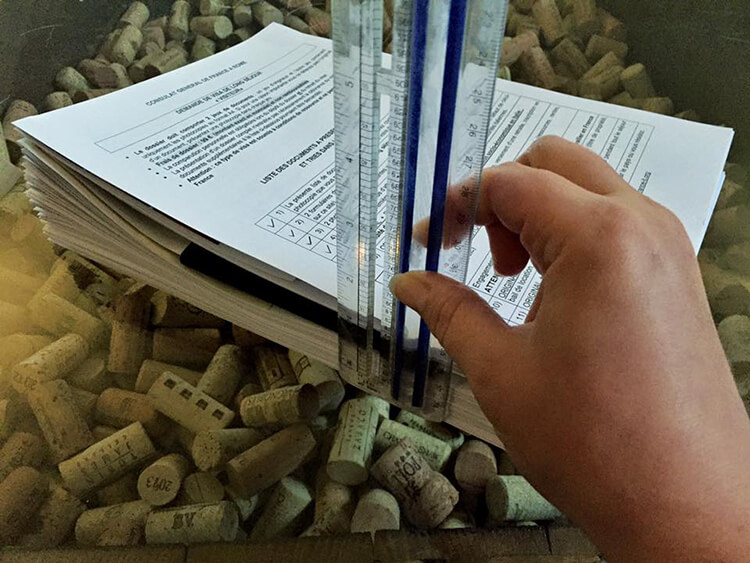
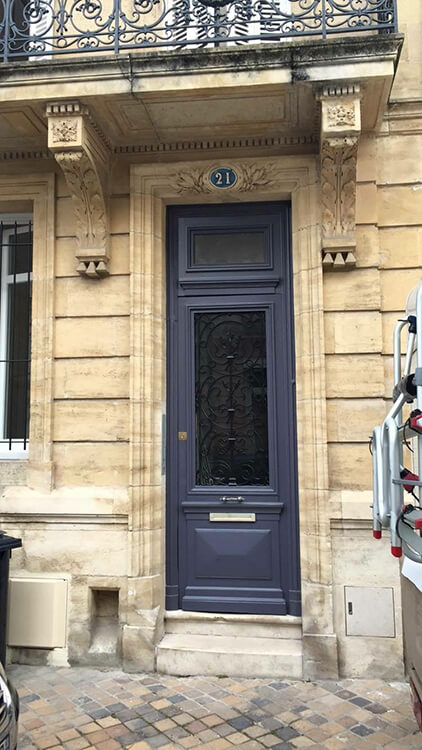
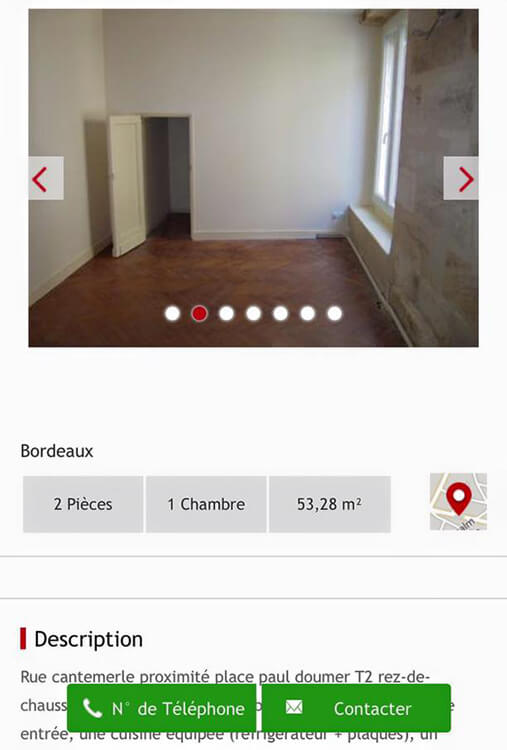
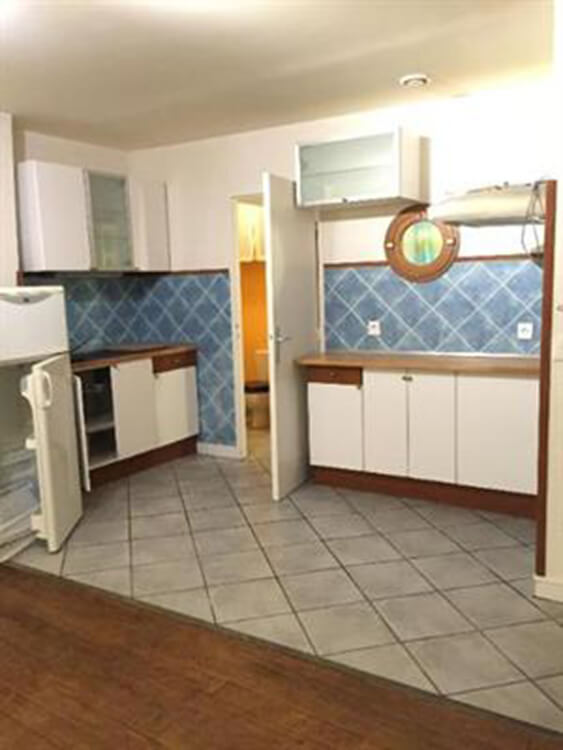
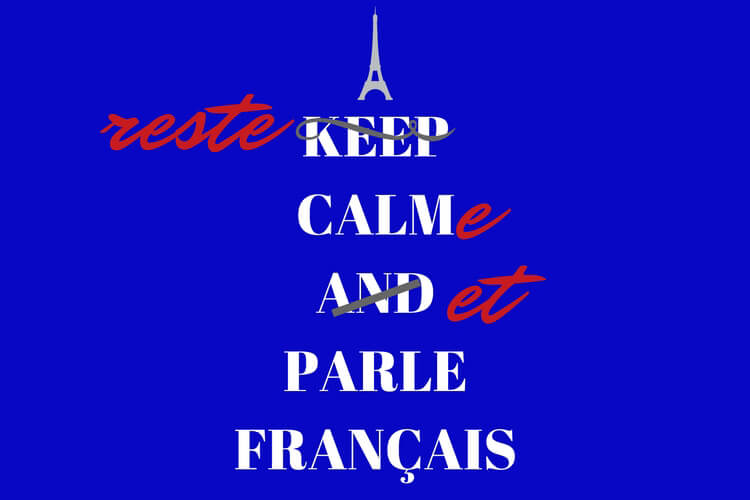
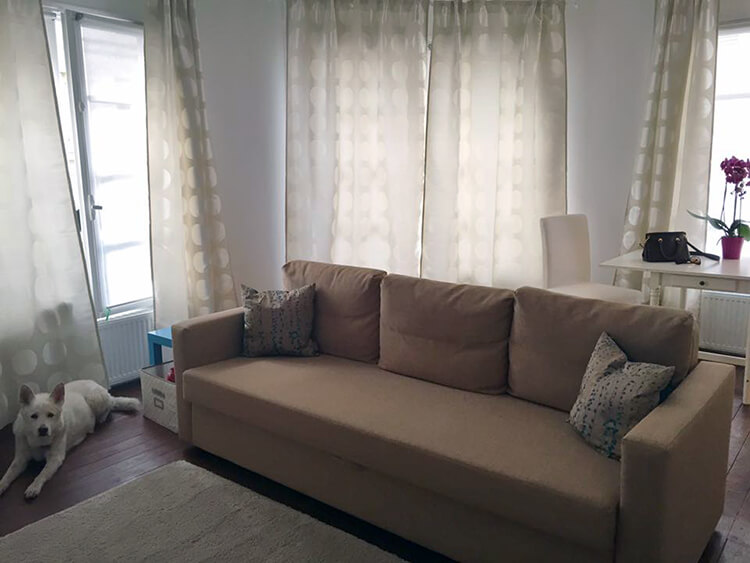
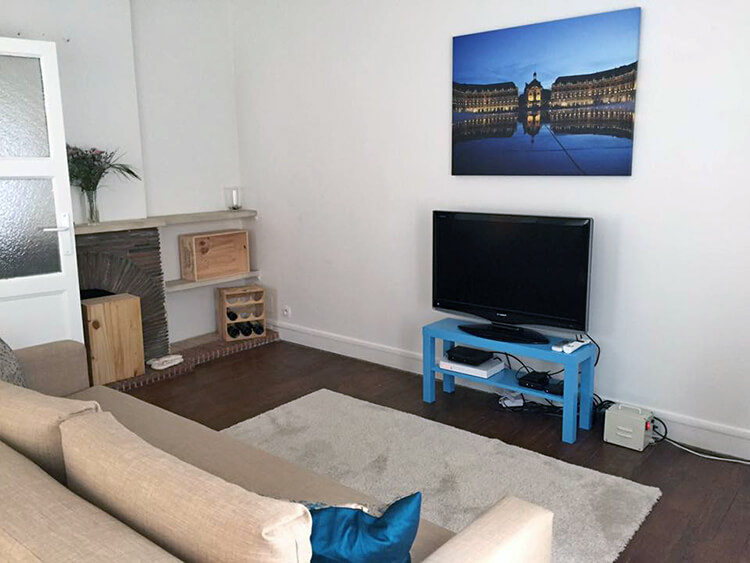
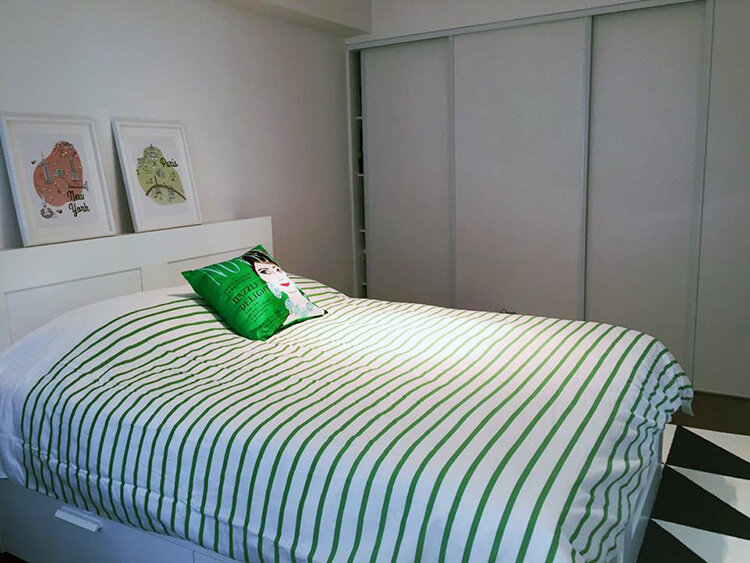


Leah says
Good for you for putting this guide together. It’s not easy to find a place as an expat. It’s so difficult that I’m pretty sure that my dead body will have to be removed from my Paris apartment. The only thing more frustrating than the apartment search is the bank account. I don’t blame France for that one, however. It’s the good ‘ol US of A’s fault.
Jennifer Dombrowski says
The bank account is definitely challenging thanks to the laws with FACTA.
Patricia Dunn says
Having lived in France for several years, I am well aware of all the criteria you mention, have bank account, proof I am a good tenant and always pay my rent on time, via direct deposit into the owner’s bank account, have rental insurance, speak good if not quite fluent French and am still unable to find the apartment I desire. The one criterion I cannot meet is to be where I want to live long enough to find what I’m looking for. I currently live north of La Rochelle and want to live in Bordeaux, specifically on the right bank, La Bastide. Do you know if there are apartment locator services in Bordeaux (as there are in some countries) that, for a fee, will locate a suitable apartment in the area one wishes to live? If so, how does one find such a service?
Matthieu Luneau says
Thank you for your guide Jennifer ! Is it possible to send it to our expatriates clients ?
Kind regards,
Matthieu
Jennifer Dombrowski says
Certainly, you’re welcome to share our link with your clients!
Robyn says
Jennifer what an incredible gift— this blog post is and the one about how to get a long term visa to move to France. I am just starting to research this now and it is daunting… but what you have written in these two articles are like the perfect road map!! Just wondering about any new changes in the laws since you moved there in 2016 that is making this process even more difficult or easier?
Thanks
Robyn C
Jennifer Dombrowski says
Hi Robyn,
I actually update with new information and any changes every year. My husband just went through the whole initial process and he’s in process with his OFII completion now since he’s just moved to France last month with me. So everything here is up to date. Best of luck if you do decide to make the move to France! Feel free to reach out if have any other questions. I know the friends I had who had been through the process themselves were invaluable resources when I was making my move.